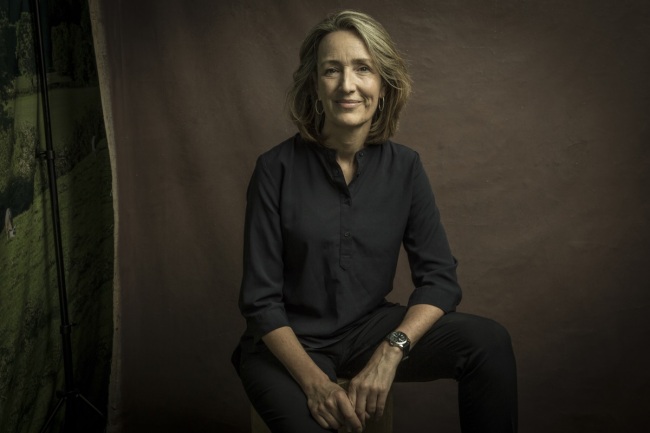[Herald Interview] BBC journalist Francine Stock talks about Korean films’ richness, complexity and honesty
By Hong Dam-youngPublished : Aug. 30, 2017 - 17:28
Francine Stock, a broadcaster for BBC Television and Radio and formerly a movie critic, has been enthralled by the richness and delicacy of Korean films, ever since they began to make waves in her country about a decade ago.
Having previously interviewed Korean director Park Chan-wook and Bong Joon-ho as a host of BBC Radio 4, Stock said globally acclaimed Korean films such as "Thirst" and “The Handmaiden,” both directed by Park, have paved the way for Korean cinema in England.
Having previously interviewed Korean director Park Chan-wook and Bong Joon-ho as a host of BBC Radio 4, Stock said globally acclaimed Korean films such as "Thirst" and “The Handmaiden,” both directed by Park, have paved the way for Korean cinema in England.

“There are some special elements in Korean films that appeal to the British sensibility. There has been a prejudice that Korean films may display similar factors of Japanese culture, but they’re not like them at all,” said Stock during an interview with The Korea Herald in Seoul on Tuesday.
“Take ‘Thirst’ for an example. Although its genre is horror and based on a French novel, the film features huge amount of emotions depicted by director Park’s original way,” she added.
In addition to combining strong cinematic characters and narratives together, Korean directors know how to weave the warmth, humor and humanity into their works, according to Stock. In British films, violence is often described almost like a choreography or ballet with the aid of visual and sound effects. But Korean films show the violence as it is, so that people can actually feel the vivid anger from the movie and even get hurt by it, said Stock.
Stock also said she was deeply impressed by how director Bong’s international project “Okja” successfully showed that films could become a measure of “cultural diplomacy” by raising questions on global issues such as international food production, globalization and the eating of animals.
Stock stated it was worrisome to see how the current film industries lack originality, as they keep reverting back to old habits and reproducing past successes. But recently she felt glad that movies like Christopher Nolan‘s “Dunkirk” showed that there are different ways to make a movie outside of the traditional mold.
“There’s this running idea among major filmmakers, ‘Let’s make another one similar to that successful one before.’ But international audiences are different these days in that they are not waiting for another superhero sequel anymore, because they see those movies are all the same,” said Stock.
She stressed that more investment should be made into creating good films and distributing them, while most movie distributers around the world rather focus on marketing the films.
Stock, who joined BBC in 1983, has fronted a range of arts and current affairs programs for BBC Television and Radio, including “Newsnight” and “Front Row.” Since 2004, she has been presenting a weekly radio show called “The Film Programme.” Stock has also published two novels: “A Foreign Country” in 1999 and “Man-made Fibre” in 2002, as well as the nonfiction “In Glorious Technicolor: a Century of Film and How it has Shaped Us” in 2011.
By Hong Dam-young (lotus@heraldcorp.com)







![[KH Explains] How should Korea adjust its trade defenses against Chinese EVs?](http://res.heraldm.com/phpwas/restmb_idxmake.php?idx=644&simg=/content/image/2024/04/15/20240415050562_0.jpg&u=20240415144419)












![[Today’s K-pop] Stray Kids to return soon: report](http://res.heraldm.com/phpwas/restmb_idxmake.php?idx=642&simg=/content/image/2024/04/16/20240416050713_0.jpg&u=)